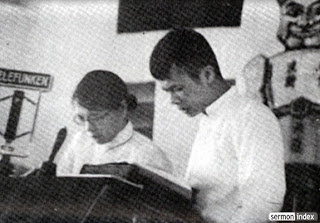Wired magazine ran an article on the five best toys ever. Wired
is one of the most innovative, bleeding-edge publications you’ll read
about all things technological. Which is why at first the list
surprised me, but then I realized their angle and couldn’t help but
appreciate their wisdom.
Here’s the list:
1. Stick.
2. Box
3. String
4. Cardboard Tube
5. Dirt
Anybody want to argue with them? I doubt it.
It’s an important reminder that the best things in life – and often in ministry, leadership, business and family – are the simple things.
The dilemma is how our culture seems to refuse to give simplicity a place.
But think about when it insists on intruding and the wake it leaves behind.
For example, a snowstorm brings your town to a standstill. You went out and stocked up on bread and milk and a few other things you didn’t really need, and settled in. The power goes out, so you light the candles and gather by the fireplace for warmth. Board games that had been gathering dust for years are pulled out. You play them and have more fun than you can remember. You then go outside and actually play, throw a snowball, make a snow-angel, build a snowman.
It’s golden.
You talk, years later, about that magic night. You’d give almost anything to go back and relive it, and wish there was a way to recreate it in the here and now.
In a complex, “always on” world, perhaps what we need to remember is that we need to intentionally unplug every now and then.
Even if just to remember that the best toys in the world – like the best times – are the most simple.
And in truth, the most available.
That is my holiday wish for you. May you enjoy the simplicity and holiness that resides in the stillness between Christmas and the new year.
And maybe some fun with a leftover box or two.
James Emery White
Sources
“The 5 Best Toys of All Time,” Jonathan Liu, Wired, January 31, 2011. Read online.
Editor’s Note
To enjoy a free subscription to the Church and Culture blog, log-on to www.churchandculture.org, where you can post your comments on this blog, view past blogs in our archive and read the latest church and culture news from around the world. Follow Dr. White on twitter @JamesEmeryWhite.
Here’s the list:
1. Stick.
2. Box
3. String
4. Cardboard Tube
5. Dirt
Anybody want to argue with them? I doubt it.
It’s an important reminder that the best things in life – and often in ministry, leadership, business and family – are the simple things.
The dilemma is how our culture seems to refuse to give simplicity a place.
But think about when it insists on intruding and the wake it leaves behind.
For example, a snowstorm brings your town to a standstill. You went out and stocked up on bread and milk and a few other things you didn’t really need, and settled in. The power goes out, so you light the candles and gather by the fireplace for warmth. Board games that had been gathering dust for years are pulled out. You play them and have more fun than you can remember. You then go outside and actually play, throw a snowball, make a snow-angel, build a snowman.
It’s golden.
You talk, years later, about that magic night. You’d give almost anything to go back and relive it, and wish there was a way to recreate it in the here and now.
In a complex, “always on” world, perhaps what we need to remember is that we need to intentionally unplug every now and then.
Even if just to remember that the best toys in the world – like the best times – are the most simple.
And in truth, the most available.
That is my holiday wish for you. May you enjoy the simplicity and holiness that resides in the stillness between Christmas and the new year.
And maybe some fun with a leftover box or two.
James Emery White
Sources
“The 5 Best Toys of All Time,” Jonathan Liu, Wired, January 31, 2011. Read online.
Editor’s Note
To enjoy a free subscription to the Church and Culture blog, log-on to www.churchandculture.org, where you can post your comments on this blog, view past blogs in our archive and read the latest church and culture news from around the world. Follow Dr. White on twitter @JamesEmeryWhite.






